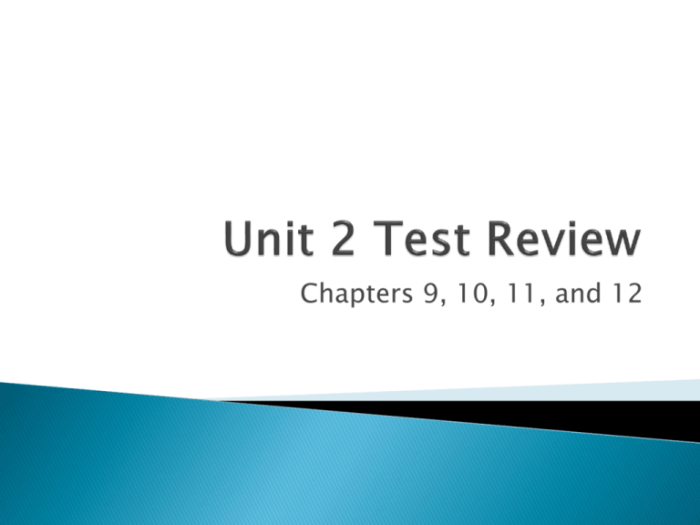Unit 10 exam joshua’s law – Welcome to Unit 10 Exam: An In-Depth Look at Joshua’s Law. This comprehensive guide will provide you with a thorough understanding of this important legislation, its implications, and its impact on individuals and communities.
Joshua’s Law, enacted in response to a tragic event, aims to protect children from sexual abuse and exploitation. Understanding its provisions and consequences is crucial for ensuring compliance and safeguarding the well-being of our youth.
Joshua’s Law: Unit 10 Exam Joshua’s Law
Joshua’s Law, officially known as the School Bus Safety Act of 2000, is a federal law in the United States that enhances penalties for drivers who illegally pass school buses.
Purpose and Significance
The law was enacted in response to the tragic death of Joshua Brown, a six-year-old boy who was killed when he was hit by a school bus while crossing the street to board the bus. The law aims to deter drivers from illegally passing school buses, thereby protecting children from potential harm.
Legal Implications and Consequences
Violating Joshua’s Law is a serious offense that carries significant penalties. Drivers who are caught illegally passing a school bus can face fines, license suspensions, and even jail time. The specific penalties vary depending on the jurisdiction and the severity of the violation.
Key Provisions of Joshua’s Law

Joshua’s Law is a significant piece of legislation aimed at preventing and addressing cyberbullying. It establishes specific provisions and requirements to protect individuals from online harassment and abuse.
Prohibited Actions and Exceptions
Joshua’s Law prohibits a range of actions that constitute cyberbullying, including:
- Sending or posting harmful or threatening messages
- Creating fake profiles or impersonating others online
- Posting or sharing embarrassing or private information
- Encouraging others to engage in cyberbullying
However, the law also recognizes certain exceptions, such as:
- Speech protected by the First Amendment
- Actions taken in self-defense or to report cyberbullying
- Actions taken by parents or guardians to discipline their children
Penalties and Enforcement Mechanisms
Violations of Joshua’s Law can result in serious penalties, including:
- Fines and jail time
- Suspension or expulsion from school
- Civil lawsuits for damages
Enforcement of the law is primarily the responsibility of law enforcement agencies and school officials. They have the authority to investigate complaints, issue citations, and make arrests as necessary.
Impact and Implications of Joshua’s Law

Joshua’s Law has had a significant impact on the lives of individuals, families, and communities affected by sexual abuse and assault. The law’s intended consequences include increased reporting of sexual abuse, improved access to support services for victims, and increased accountability for perpetrators.
However, the law has also had some unintended consequences, such as increased fear and stigma for victims and their families.
One of the most significant impacts of Joshua’s Law has been the increase in reporting of sexual abuse and assault. Prior to the law’s passage, many victims of sexual abuse were reluctant to report the crime due to fear of retaliation or disbelief.
Joshua’s Law has helped to break down these barriers by providing victims with more confidence that their reports will be taken seriously and that they will be supported throughout the legal process.
Another important impact of Joshua’s Law has been the improvement of access to support services for victims of sexual abuse and assault. The law has provided funding for a variety of services, including counseling, legal assistance, and medical care. These services can help victims to heal from the trauma of sexual abuse and to rebuild their lives.
Finally, Joshua’s Law has also increased accountability for perpetrators of sexual abuse and assault. The law has made it more difficult for perpetrators to escape punishment and has increased the likelihood that they will be held accountable for their crimes.
Unintended Consequences
While Joshua’s Law has had many positive impacts, it has also had some unintended consequences. One of the most significant unintended consequences has been the increase in fear and stigma for victims and their families. Some victims have reported feeling more afraid to come forward and report sexual abuse due to fear of retaliation or disbelief.
Additionally, some victims have reported feeling stigmatized by their experience and have been reluctant to seek help.
Another unintended consequence of Joshua’s Law has been the increase in the number of false reports of sexual abuse. Some people have used the law to make false accusations of sexual abuse in order to gain revenge or to extort money from the accused.
These false reports can have a devastating impact on the lives of the accused and can make it more difficult for real victims to be believed.
Potential Implications
Joshua’s Law has the potential to have a significant impact on public safety and law enforcement. The law’s increased reporting of sexual abuse and assault can help to identify and apprehend more perpetrators of these crimes. Additionally, the law’s increased accountability for perpetrators can help to deter future crimes and to protect the public from harm.
However, Joshua’s Law also has the potential to have some negative implications for public safety and law enforcement. The law’s increased fear and stigma for victims and their families can make it more difficult for victims to come forward and report sexual abuse.
Additionally, the law’s increased number of false reports of sexual abuse can strain law enforcement resources and make it more difficult to investigate real cases of sexual abuse.
Controversies and Criticisms of Joshua’s Law

Joshua’s Law has sparked controversies and criticisms, raising concerns about its potential impact on individual rights, due process, and the fairness of the criminal justice system.
Ethical and Constitutional Concerns, Unit 10 exam joshua’s law
Critics argue that Joshua’s Law violates the constitutional rights of defendants by:-
- Presuming guilt without providing sufficient evidence.
- Limiting the ability of defendants to present evidence of their innocence.
- Imposing harsh penalties that may be disproportionate to the severity of the crime.
Additionally, critics question the ethical implications of holding parents responsible for the actions of their children, arguing that it could lead to unfair punishment and unintended consequences.
Arguments from Supporters
Supporters of Joshua’s Law contend that it is necessary to deter violent crime and protect society from dangerous individuals. They argue that:-
- The law targets repeat offenders who have a history of violent behavior.
- It sends a clear message that society will not tolerate violence and will hold perpetrators accountable.
- It provides an opportunity for parents to intervene and prevent their children from committing further crimes.
Supporters also maintain that the law is constitutional and that the potential benefits to society outweigh any concerns about individual rights.
Best Practices for Compliance with Joshua’s Law

To ensure compliance with Joshua’s Law, individuals and organizations should adopt proactive measures. This involves implementing comprehensive policies and procedures, conducting regular training, and establishing a culture of safety and accountability.
Unit 10 exam Joshua’s Law was a breeze, but it got me thinking about the skinny i am fast riddle . I mean, what could be so skinny and fast? After wracking my brain for a while, it hit me – a noodle! Now, back to Joshua’s Law and its implications for contract law.
Preventing Violations
- Develop clear and concise policies outlining prohibited conduct, reporting requirements, and consequences for violations.
- Provide mandatory training for all employees on the law’s provisions, their responsibilities, and reporting procedures.
- Establish a confidential reporting system that allows employees to report suspected violations without fear of retaliation.
Mitigating Potential Risks
- Conduct thorough background checks on potential employees to identify any history of child abuse or neglect.
- Implement supervision and monitoring systems to ensure compliance with safety protocols and reporting requirements.
- Establish a risk management plan that identifies potential vulnerabilities and develops strategies to mitigate them.
Examples of Successful Compliance Efforts
- School District X:Implemented a comprehensive training program for all staff, established a confidential reporting hotline, and developed a risk management plan that included regular safety audits.
- Childcare Center Y:Conducted background checks on all employees, provided ongoing training on child abuse prevention, and implemented a system of supervision and monitoring to ensure the safety of children.
Future Developments and Considerations
As the field of child protection evolves, Joshua’s Law may undergo revisions and amendments to align with emerging trends and best practices. This section explores potential future developments and considerations related to the law.
Potential Amendments or Revisions
Future amendments to Joshua’s Law may focus on:
- Expanding the definition of “vulnerable child” to include additional risk factors.
- Clarifying the reporting requirements for professionals and mandated reporters.
- Increasing penalties for violations of the law.
- Providing additional resources for child protection services.
Emerging Trends and Best Practices
Emerging trends in child protection include:
- Increased use of technology to monitor and track child predators.
- Greater emphasis on prevention and early intervention programs.
- Collaboration between law enforcement, child protection agencies, and community organizations.
Areas for Further Research and Policy Analysis
Further research and policy analysis is needed to:
- Examine the effectiveness of Joshua’s Law in preventing child sexual abuse.
- Identify gaps in the law and develop recommendations for improvement.
- Explore the impact of Joshua’s Law on child victims and their families.
FAQ Section
What is the primary purpose of Joshua’s Law?
Joshua’s Law aims to protect children from sexual abuse and exploitation by establishing clear legal consequences for violations.
What are the key provisions of Joshua’s Law?
Joshua’s Law prohibits specific actions, such as sexual contact with minors, and Artikels penalties for violations, including fines and imprisonment.
How does Joshua’s Law impact individuals and communities?
Joshua’s Law has significant implications for individuals who violate its provisions, as well as for families and communities affected by child abuse.